THE HOUSEBOY BY FERDNAND OYONO
TITLE/INTRODUCTION TO THE BOOK
The houseboy is a story of a boy named Toundi who worked as a houseboy for Father Gilbert and later the Dangan Commandant – M. Robert. Due to racial injustice that Africans had to pass through, the boy who is now a man, encounters cruel hands of the French colonial masters who torture him severely. In his attempt to save his life from the impending danger by escaping to Spanish Guinea, he meets his death in a foreign country.
African narratives, in the era immediately preceding and following formal declarations of independence, were born, for the most part, in protest against history and myths constructed in conjunction with the colonial enterprise. Writers struggled to correct false images, to rewrite fictionally and poetically the history of pre-colonial and colonial Africa, and to affirm African perspectives.
The implicit or explicit urge to challenge the premises of colonialism was often realized in autobiography or pseudo-autobiography, describing the journey the writers themselves had made away from home to other shores and back again. African intellectuals and writers felt keenly that; “The truth, depends not only on who listens but on who speaks” – Birago Diop.
Ferdinand Oyono’s Houseboy offers critical portraits of the hypocritical and mediocre French colonial masters who were thought to be bearers of “Civilization” but they ended up portraying a picture of mediocrity. That is why he includes statements like “Young African children are just as intelligent as ours” admitted by a white man. This is used deliberately to refute the idea that Africans were primitive, unintelligent and uneducable.
PLOT
The plot of this novel is a bit strange and complicated as it goes back and forth. The author has chosen to deliberately divert from the usual normalcy of division into parts and chapters but he gives his novel a fresh look suggesting perhaps that things are not going to be as expected. The story begins by its end being placed at the beginning showing the narrator who is in a foreign country of Spanish Guinea which serves as a refuge for the fugitives from Gabon and Cameroon whenever things become hot between the Africans and their whites compatriots.
The main plot of the story is developed through a flashback of events that happened in the life of the fugitive Toundi Ondoua who died in a foreign country leaving behind his two exercise books that served as his life diaries. The rest of the story depends solely on what this man wrote about himself and the whites to the point when he was in bed and could not finish his own story including how he dies. So the narrator had to come in and finish the story which after all is placed at the beginning.
There are also several flashbacks in the book giving some background information without which some events might not have made sense.
Toundi tells us about the death of his father, then flashes back to tell the story which led to his father’s death afterwards.
He also begins by showing that he is already a houseboy then he flashes back to tell us the inevitable condition that made him a houseboy.
Father Gilbert’s death also creates the room for a flashback that helps us to know that there are two Greeks who suffered the same fate as Fr. Gilbert.
STYLE.
The playwright has employed various techniques to drive his message home. The events in the story unfold through the following techniques.
Diary. The most part of the book is narrated from a diary that the main character kept after learning how to read and write. The narrator observes from the very beginning; “That was how I came to read Toundi’s diary. It was written in Ewondo which is one of the main languages of the Cameroons. In the translation which I have made and which you are about to read, I have tried to keep the richness of the original language without letting it get in the way of the story itself” (p.5)
Monologue. The story in the diary is told in a monologue style with the main character taking the position of the narrator and narrates the events as though it is to be taken as an autobiographical account of his real life. He introduces himself as in most autobiographies by saying “My name is Toundi Ondoua…” (p.9)
Dialogue. There are many cases of dialogue inserted inside the narrative to bring characters and events to life. One such a dialogue is between Toundi and the commandant in page 21;
“After he had looked at me for a long while, he asked me point-blank if I were a thief.
‘No, Sir’ I answered. ‘Why aren’t you a thief?’
‘Because I don’t want to go to hell’
He seemed taken aback by my answer. He tossed his head in disbelief. ‘Where did you learn that?’
‘I am a Christian, Sir’ I told him and proudly showed him the St. Christopher medal I wear round my neck.”
Songs. To further enrich his style he has included songs which are part and parcel of African traditional life. This was sung by Ondoua, the drummer who sings it to call the labourers. The song goes: (p.29)
Ken…ken…ken…ken…
Out of bed….out of bed…. Ken…ken…ken…ken… How he troubles us.
Ken…ken…ken…ken…
He doesn’t give a fuck for you He doesn’t give a fuck for anyone… Ken…ken…ken…ken…
What can you do to him… There is nothing you can do… Ken…ken…ken…ken…
Out of bed… out of bed…
There is a song that they sing in French when someone is dying. (p.
Shut the door, Saint Peter,
Shut the door and hung up your keys He’s not coming, he’s not dying – Shut the door, Saint Peter,
Shut the door and hung up your keys
Poetic language. Poetic language is also used to enrich the author’s style. Two examples of this are; one by Chief Akoma who if addressed he replies by saying;
Akoma King of rings, king of wives White man one ring
Akoma has more than the Whiteman Akoma King of rings, King of wives.
Another one is recited by Toundi when he was arrested and it shows monotony of the works they do.
“Water-party.
Water, sweat. Whip, Blood. Up the Slope, killing. All in I cried.” (p.117)
Point of View. The story is largely told in first person point of view. The main character Toundi is the narrator of his own life told though his own diary in form of two exercise books. However the prelude of the story which is supposed to be the end of it is told in limited third person point of view. The narrator is limited in what he knows about the main character and relies heavily on the diary to develop his narration.
SETTING
The setting is Cameroon during French colonial rule and all the events that are taking place respond to the surrounding atmosphere of that time. There are minor settings which have also been used to reflect the condition of Africans who were there. These include the hospital, called “The Blackman Grave”, The church, the Prison, The Residence, and Generally other countries of Africa are like Spanish Guinea and Gabon are mentioned to show that the setting reflects African continent in general during the era of colonial domination.
LANGUAGE USE
Oyono’s use of language is so carefully done that every detail he wants to communicate gets through in a simple yet artistic way. His language and choice of vocabulary communicates to the Colonial masters and reflects the inner life of native Africans. The houseboy was first written in French with the title “Une Vie de Boy” and was published in 1956.
Oyono, like other writers of those years, wrote in response to denigrating mythologies and representations of Africans by nineteenth-and twentieth-century British and European writers, that the African past was not one long night of savagery before the coming of Europe. He uses strong symbolism and images as we are about to see, portraying the fact that if truth be told, then Europeans were much more morally corrupt than Africans. So the language used here in this diary is intended for the Francophone European readership.
He has made use of Pidgin English showing perhaps the linguistic limitation of the lower class people who did not have a chance to go to school. The Sentry uses this kind of English when he says “Panther-Eye beat like Gullet. Him kick me bam! Go like dynamite. Panther-Eye no joke” (p.25). For some reasons known to himself, Gullet also imitates the pidgin spoken by natives telling Toundi not to pour too much of the whisky “Man,… we no be native drinkers” (p.49)
Abusive and derogatory words have been used regardless of the relationship between the speaker and the addressee to stress the extent to which the society is morally corrupt. Toundi’s father for instance tells him “Your way back into the house will pass through my anus” (p.11). This is not expected of a father-child talk. Also Madame Suzy insults her workers. To Baklu she said “Idle creature! You lazy idle loafer!” (p.73), “She called the cook an old baboon” (p.74). Kalisia also uses derogatory language speaking of Madame “You rascal, you rogue, you sly devil, slender hips like you’ve got are often the nest for a great big snake” (p.95). Sophie talking about her lover she says; “Fuck his country and fuck him” (p.26)
Imagery and Symbolism
The author has used several symbols and images that have successfully helped him to portray the picture of the white men who came to spread civilization and claimed to have the moral standards they actually didn’t have.
The Sanitary towel and condoms (two rubber bags) – These are used to show moral decay among the European community. The fact that Madame Suzy gives the Sanitary towels that are so private to the Laundryman to wash for her shows how careless and morally corrupt she is. The presence of condoms under Madame’s bed with liquid in them (semen) creates a visual image of disgust showing a mental picture of moral decay.
The church/Catholicism – The church under the Catholic system is portrayed as a symbol of and a tool that facilitates hypocrisy, racism, exploitation and oppression towards the natives.
Tree trunks and armchair with cushions – They symbolise racism and classes in the church. The Africans sit on tree trunks while Europeans sit in armchair with cushions.
The prison and the whip – They are used as instruments and tools of torture and oppression to Africans.
Kalisia – She symbolises morally corrupt Africans who were the victims of the colonial system that introduced prostitution in African society.
Mud-walled huts and corrugated iron roofed houses – these are symbols of poverty and affluence respectively. The Africans live in mud-walled huts while Europeans live in good houses.
Toundi’s death – This symbolised the climax of the whites brutality to the innocent Africans who suffered unfairly and killed for the crimes they did not commit.
Similes
He was curled up, folded into himself like a huge antelope. (p.3)
He threw the little lumps of sugar to us like throwing corn to chicken. (p.10)
He laughed with all his teeth so his teeth looked like a crescent moon. (p.13)
The skin of my knees is now as hard as crocodile skin. (p.14)
When I was small he treated me like a pet animal. (p.14)
My master is thickest. His legs have great muscles like the legs of a pedlar (p.22)
He always had a gourd full of rum hanging from his left shoulder like a beggar’s bag. (p.29)
Mme Salvain wore a dress of red silk which showed off her great behind like the ace of hearts. (p.30)
(Madame) She jumped as if hot coals had been dropped on to her arms. (p.31)
He is a little man, as thin as the lean kine in Pharaoh’s dream. (p.31)
Mengueme is an old man as cunning as the tortoise in the fables. (p.36)
Life is like a chameleon changing colour all the time. (p.36)
The driver hammered in the tires which rang like a taut bowstring (p.36)
(Sophie) Her mahogany skin gleamed like bronze in the light that flooded over it. (p.37)
The going was as smooth as on the roads in Dangan itself (p.39)
It sounded like the siren on the American sawmill at Dangan.
They huddled together like chickens who have sighted the shadow of the vulture. (p.40)
Her smile is refreshing as a spring of water. (p.47)
Madame was dressed all in white like a newly opened flower. (p.48)
Mme Salvain was like an old lamp fetched into the sun. (p.48)
The doctor’s wife looked as flat as putty flung at the wall. Madame Gullet was stuffed into her slacks like cassava in a banana leaf. The Mesdemoiselles Dubois were alike as a pair of sacks. (p.48)
The laughter came seldom like the tears of a dog. (p. 52)
She sprang into the washhouse like a wounded panther. (p.73)
Metaphors
I had to look into his diary. Ah, it is a grain-store for memories. (9)
Toundi is referred to by his father as “A drop of my own liquid speaking to me like that! (p.11)
A sea of human beings filled the central square in the village. (p.39)
The Agricultural engineer calls Sophie. “my cabbage, my chicken”
Still I prefer my boyfriend to that old toad. (p.44) (referring to Old Janopoulos)
The prostitute calls Mekongo “My little chick” (p.58)
(Baklu) My ear is a tomb
The white elephant you know of visited the Commandant field…(p. 62) (referring to M. Moreau)
You are an old tortoise. (p.63) (Baklu said to the sentry)
A woman is a cob of maize for any mouth that has its teeth. (p.71)
They are corpses. Do corpses feel shame?
He is my guardian angel. (p.116) referring to Mendim.
‘The Blackman’s Grave“. (p.76,117) Referring to the hospital because most natives who were taken there died.
Now I was only a cloud, a cloud of fireflies, a bright dust of fireflies swept on the wind…(p.121)
Personification
I knew from the troubled looks on their faces that the drums spoke of some misfortune. (p.2)
The thud of the mortars announced the preparation of the evening meal. (p.12)
A sea of human beings filled the central square in the village. (p.39)
She offered me her hand. It was soft, tiny and limp in my big hand that swallowed it up like a precious jewel. (p.47)
Comments came flying from all sides. (p54)
My mouth is always running away with me. (p.61)
The eyes that live in the native location strip the whites naked. (p.71)
Exaggeration
He saw into my heart and read what was written there. (p.2)
You know if I don’t get you now I will wait for you for a hundred years to give you your punishment. (p.10)
The house was flooded with light as if it were full noon. (p.24)
His colour went from its red towards green then back to the anaemic pallor. (p.45)
My legs seemed to have disappeared. (p.61)
A thousand thoughts rushed into my mind. (p.63)
What’s all that light? You haven’t brought the sun home in your pocket by any chance? (p.109)
There were tears in her voice. (p.110)
All the illness in the world touched and jostled, sweated and squeezed, surging backwards and forwards every time the door opened or shut. (p.118)
The whole world stretched out at my feet, a great sea of people with leprosy and yaws…(p.120)
Euphemism
You are shut up all night in a hut with a woman and you say your mouth is tired. When I tell people they won’t believe me. They’ll say. “Perhaps it’s because his knife is not very sharp he prefers to keep it in its sheath.” (p.43). The knife referred to here is a male sexual organ.
It is a thing to wear for that particular occasion (p.88). (referring to a condom and what it is used for)
Those who come out feet first. (p.72) (refers to those who die)
Sayings (Proverbs and idioms)
The dog of the King is the king of dogs (p.20)
Life is like a chameleon changing colour all the time. (p.36)
The elephant does not rot in a secret place. (p.41)
The dog can die of hunger beside his master’s meat. They don’t bury the goat up to the horns. They burry him altogether. (p.44)
A king should always have the prettiest wife in the kingdom.(p.46)
The river does not go back to its spring. (p.56)
Truth lies beyond the mountains. You must travel to find it. (p. 57)
Has the lion waited till the shepherd has gone before coming to devour his ewe? (p.60) (referring to Moreau as a lion and Madame as a ewe)
I’m talking and what I’m saying is the panther is prowling around the sheep (p.61) (referring to
M. Moreau as a Panther and Madame as a sheep.)
Since when does the pot rub itself against the hammer? (p.62). (meaning the inferior cannot stand against the superior.)
(M. Moreau). He is not the man to wait for the fruit to drop off the tree. (p.63)
It will take the master several more days before he is finished in the forest of ‘Evil Chimpanzee’ (p.65)
A woman is a cob of maize for any mouth that has its teeth. (p.71)
It is the voice of wisdom…outside his hole the mouse does not defy the cat. (p.87)
The white man cried and moved heaven and earth to find her again. (p.91)
“I’d go now before the river has swallowed me up altogether. Our ancestors used to say you must escape when the water is still only up to the knees” (p.100)
If I were in your shoes, I swear I’d go right away… (p.101)
Anaphora
No more holes, no more grass, no more dung. (p.39)
Oxymoron
…to go begging lumps of sugar from some white man-woman…(p.10)
CHARACTERISATION
Toundi
He is the protagonist. He is the main character from Ndjem tribe who suffers the fate of colonial injustice and dies as a fugitive in the foreign land.
He is a victim of whites’ brutality. His whole life has been tragic as a result of mistreatment he gets from the colonial masters for whom he works as a houseboy. First he is oppressed by Fr. Gilbert and later by the commandant.
He is a punctual and hardworking houseboy. He is proud of his job as a houseboy and refers to himself as a dog of the king so he is the king of dogs.
He is perseverant. He is mistreated by the colonial masters but he perseveres. He is kicked, abused, stepped on but he doesn’t complain.
He is faithful. He has been working for father Gilbert but he has never stolen anything. This was confirmed by the commandant when he took him and asked him whether he is a thief.
He is a convert Christian. He is among the convert Christians who were converted both physically and mentally. His name was changed from Toundi to Joseph and ever since he has been a faithful Christian.
He is a Frenchman by Assimilation. He is also among the Africans who were assimilated as Frenchmen but never received the same privilege as their white French compatriots. That’s why he asks the narrator “Brother what are we? What are we black men who are called French?” (p.4)
He is obedient. He has always obeyed his colonial masters despite all the mistreatments they exercised on him. He comments about himself by saying “I am a thing that obeys” (p.22). For example he is warned not to make love with Sophie and he obeys. Sophie notices it and says “The dog can die of hunger beside his master’s meat.” (p.44)
He plays the role of a go-between for Madame and M. Moreau. He is used by Madame Suzy as a go-between taking presents from Madame to M. Moreau and cigarettes from M. Moreau to Madame. That’s why the commandant accuses him by saying “you were the go-between, eh? For cigarette from Moreau and a little present from Madame – eh?” (p.99)
He is an orphan. Toundi became an orphan by the time he ran away to St. Peter’s Catholic mission. His parents died but he never went to the village as hhe says “My parents are dead. I have never been back to the village.” (p14)
He is appreciative. Despite the fact that he works hard for Fr. Gilbert without pay, he appreciates the old clothes he gets from father Gilbert. He says “I don’t earn any money. Now and then he gives me an old shirt or an old pair of trousers. Father Gilbert knew me when I
was stark naked, he taught me to read and write … Nothing can be more precious than that, even if I have to go badly dressed.” (p.15)
Toundi’s Father
He is a very hot tempered and cruel father. He used to beat both Toundi and his mother and it would take them a week to recover from the beatings. Toundi says “Whenever he went for either my mother or me, it always took us a week to recover. (p.10). he also ate Toundi’s porcupine reserved for him and Toundi’s mother cried to the Point that Toundi thought for the first time of killing his father.
He is very tricky. When he was beating Toundi and found that he was running away to the point that he wouldn’t be able to chase him he used tricks to make him stop by threatening that “I warn you, you had better stop. If you go one more step backwards that will be an insult to me. I will take it as a sign that you are capable of taking your mother to bed.” In another occasion he says “If you dodge again it means you are capable of taking my mother, your grandmother to bed” (p.11)
He is a traditionalist. He believes in taking boys to initiation ceremonies and dies when he fails to take Toundi who has gone to be a houseboy of the white priest. He also believes in curses. He threatens to curse Toundi if he doesn’t stop. “Unless you stand still I shall curse you.” (p.11).
He is abusive and dishonest. He threaten Toundi that he would tell his mother that Toundi has insulted both of them which is not true but he himself says “Your way back into the house will pass through my anus” (p.11)
Father Gilbert
He is a white priest and Toundi’s benefactor. He is the one who rescued Toundi from the cruel hand of his father and sheltered him at St. Peter’s Catholic mission at Dangan. Later he taught him how to read and write.
He is an exploiter. Despite the fact that Toundi works for him and he appreciates the work he does, he pays him no money except old clothes. Toundi says “I am his boy, a boy who can read and write, serve Mass, lay a table, sweep out his room and make his bed. I don’t earn any money. Now and then he gives me an old shirt or an old pair of trousers.” (p.15)
He is sometimes cruel to Africans. Toundi narrates who he used to kick him and he found the record of that kick in Fr. Gilbert’s diary.
He is cheerful and pleasant. In Toundi’s own words he says that father Gilbert was cheerful and pleasant and when he was small he treated him like a pet animal. (P.14)
He dies a terrible death caused by a fallen branch of a cotton tree. He was crushed on his motorcycle by the brand of a tree the native named “Hammer of the whites” as it had killed two Greeks before (p.16)
Father Vandermayer
He is Father Gilbert’s assistant. He assists Father Gilbert to conduct spiritual programs at the mission and when Fr. Gilbert dies he takes charges to lead the Mass at St. Peters Church.
He is a censor for houseboys. His main responsibility is to watch over the houseboys and natives to make sure that they behave well. Toundi says “He censor for the houseboys and the faithful of the parish.” (p.15)
He is cruel to natives. He treats the natives with cruelty by beating them. Toundi says “He loves to beat the Christians who have committed adultery – native Christians of course.” (p.15)
He is a hypocrite. He is portrayed as a hypocrite because he watches over the natives and punishes those who commit adultery but the whites like Madame, M. Moreau, Agriculture engineer, etc. are doing the same and he doesn’t take any measures against them.
He is a singer. Toundi informs us that he is a good singer in the mission. “He has the best voice in the Mission so he sings Mass at the major feasts” (p.15)
M. Robert –
He is the Commandant of Dangan. He is a new commandant who was posted to Dangan and took Toundi as his houseboy.
He is cruel and has no mercy to Africans. They refer to him as “Panther-Eye” the sentry tells Toundi; “Panther-Eye beat like Gullet. Him kick me bam! Go like dynamite. Panther-Eye no joke” (p.25). He also used to tread on Toundi’ hands and pretends not to be aware of it.
He suffers from intrapersonal conflict when he discovers his wife’s betrayal. He discovers that his wife has extramarital affair with M. Moreau and becomes angry for the natives were saying he is a commandant whose wife opens her legs in cars and in ditches.
M. Moreau –
He is the Prison Director. He is in charge of the prisoners at Dangan and he uses that opportunity to discipline them.
He is a womaniser. He is a womaniser because he is married but he has extramarital sexual affairs with Madame.
He is a betrayer. He betrays both his wife and his boss the commandant by having extramarital affairs with Madame.
M. Janopoulos
He is a rich white man. He is believed to be the wealthiest member of the European community in Dangan.
He is the owner of the European Club. E is the one who organises all the entertainments for the European population of Dangan.
He hates Africans (natives). He dislikes seeing them around the European club so he chases them with his dog. Toundi reports that “Janopoulos doesn’t like natives. He likes to set his huge Alsatian on them. This causes a great stampede and amuses the ladies” (p.27)
He is said to be the only survivor from a party of adventurers who were eaten in the eastern region of the country a few years before WW1. (p.27)
M. Salvain
He is the head of Dangan School. He loves Africans and plans to help them get education.
He starts an infant class for African babies after discover
He is an honest man. He acknowledges that African children are as intelligent as theirs. But he also acknowledges that the moral decay found in Africa is the same as in Paris. His fellows call him a traitor for talking well about Africans.
M. Gullet
He is the chief of the police in Dangan.
He is very cruel to the natives. He treats the natives with cruelty to the point that they abandon their huts and go to hide in the forest avoiding his night raids.
He has no mercy. He orders that Toundi should be beaten 25 whips and he shouldn’t be given the food the following day.
Baklu –
He is a laundryman. He works as a laundryman at the commandant’s house.
He is intelligent. Toundi admits that “The laundryman I found for Madame is an intelligent lad” (p.59).
He is one of the humiliated African workers. He is given the sanitary towels by Madame to wash for her. He says “What are we to these whites? Everyone I have ever worked for has handed these things to the laundryman as if he wasn’t a man at all…these women have no shame…(p.81).
Sophie
She is M. Magnol’s girlfriend. She lives with the Agricultural engineer as his mistress.
She is a beautiful girl. Toundi says “Yet my God she is beautiful. Her mahogany skin gleamed like bronze in the light that flooded over it. (p.37)
She is a victim of racial prejudice. Despite the fact that she is his girlfriend but he doesn’t feel free to treat her as such. He introduces her as his cook and sometimes when he has European visitors he treats Sophie with racial prejudice. Sophie reports the way she is instructed “Sophie, don’t come today. I’ve got a European coming to see me at the house.” “Sophie you can come, the European has gone,” “Sophie, when you see me with a white lady don’t look at me, don’t greet me,” and all the rest. (p.27)
She is a thief. She finally decides to steal her lover’s money and clothes and run away.
She is aware of racial discrimination. She knows that what the Europeans are doing isn’t fair. She doesn’t see any different between her and white ladies who are treated with respect. She says “What lovely manners they’ve got, these whites …even if it’s only among themselves…my arse is just as delicate as the arses of the ladies they have up in the driver’s cabin” (p.38)
She is promiscuous. She engages in sexual affairs with the agricultural angineer who is not married to her.
The Sentry
He is a security guard at the Commandant’s house. He works as a watchman at the commandant’s house.
He is a victim of Whites brutality. Like other workers he too is treated brutally by the whites especially the commandant as he complains “Panther-Eye beat like Gullet. Him kick me bam! Go like dynamite. Panther-Eye no joke” (p.25).
He keeps no secret. He is the one who discovered that Madame and Moreau made love since he saw Moreau leaving at midnight and told it to Toundi, the cook and Baklu. “The truth is, can I deny that I saw the prison-director leaving Madame after midnight?” (p.60)
The cook
He works as a cook at the commandant’s house.
He is a good advisor. He advised Toundi to be careful with his closeness to Madame when she started addressing him as Monsieur Toundi.
Madame Suzy
She is the wife of the commandant and a cigarette smoker. Every now and then she sends Toundi to M. Moreau to bring her cigarettes.
She is beautiful and attractive. She is described as beautiful because her coming to Africa made all other white women look like nothing. All the people natives and whites admired her.
She is a betrayer. She betrays her husband by having extramarital relationship with Monsieur Moreau.
She is infidel and morally corrupt. She shows her moral corruption when she engages in sexual relationship with somebody’s husband while she is also married.
She is an irresponsible woman. She is lazy as she likes sitting idly and the biys have to do all the domestic chores even sweeping her room, making her bed and washing her sanitary towels.
M. Magnol’s
He is the Agricultural engineer.
He is Sophie’s lover thus a womaniser. He too engages in sexual relationship with Sophie who is not married to him officially.
He is a hypocrite. He pretends before the Europeans that he has no girlfriend so he keeps Sophie away when they visit him. At times he introduces her as his cook.
He is a racist. He shows racial segregation openly by telling Sophie that When she sees him with White ladies she should not look at him nor greet him “Sophie, when you see me with a white lady don’t look at me, don’t greet me,” and all the rest. (p.27)
Kalisia
She is a prostitute. She has been living with many men before she came to work for Madame Suzy. The cook says “Kalisia had had enough of whites and she lived for a long time with one of the coast Negroes you know, the ones with salty skins. Then she left him. She lived with other white men, other blacks and other men who were not quite black and not quite white” (p.91).
She works as a chambermaid– a woman whose job is to clean bedrooms, usually in a hotel. Madame Suzy employs her as a chambermaid after Toundi discovered two used condoms from under her bed when he was doing the sweeping.
She is a good advisor. She too advised Toundi to run away seeing that the situation at home was getting tense and tense. She said “If I were in your place, I’d go now before the river has swallowed me up altogether. Our ancestors used to say you must escape when the water is still only up to the knees” (p.100)
She is a town-girl and doesn’t settle in one place. The cook says “Her parents must have eaten a travelling salesman. She can’t stop still in one place. She lived on the coast with a white man. He was talking about marrying her and taking her home with him…then one morning Kalisia went off…” (p.91)
She has an attractive figure that makes white men crazy over her. She has a well-developed behind that, white men not only love her, but also think of marrying her. Something very rare to happen and when it happens it is considered very special. The cook says “The whites are all crazy about her behind, well you’ve seen it, those lovely elephant’s livers bulging beneath her cloth…” (p.90)
She is apologetic and repentant. When she discovers that she has offended Toundi she quickly apologises in a way that Toundi describes. “I didn’t mean to make you angry my brother’ she said so repentant that my anger quickly drained away” (p.95)
THEMATIC ANALYSIS
ASSIMILATION POLICY
This is an act of making or allowing somebody to become, a part of a country or community rather than remaining in a separate group. This policy was used by French in their colonies in which case they allowed Africans to have French Citizenship and be regarded as Frenchmen. It had tremendous effects on Africans personality in different spheres of existence. We shall look at how it resulted into loss off identity and mental colonisation to Africans.
Loss of Identity.
The French assimilation policy left the Africans in a dilemma of their personal identity. The Colonialists colonised the Africans not only physically but also mentally. This was done so carefully to keep Africans unaware of the whole thing behind the scene by converting them to Christianity and changing their names. In the process Africans lost their African identity and they never became complete Frenchmen as it was supposedly thought. This has left the Africans in limbo asking themselves who they really are.
Toundi asks the narrator when they meet in Spanish Guinea and recognise each other as Frenchmen from Cameroon “Brother, he said. Brother, what are we? What are we black men who are called French?” (p.4). This shows that the idea of searching for their personal identity came to them rather later than sooner.
Toundi developed this sensation when he witnessed two Africans being treated brutally by the White men as though they were not human beings something that gave him a picture of awareness of who the white man really is. Among the questions that ran into his mind were; “I thought of all the priests, all the pastors, all the while men who came to save our souls and preach love of our neighbours. Is the white man’s neighbour only other white men? Who can go on believing the stuff we are served up in the churches when things happen like I saw today…” (p.76).
He came to realise that the question of love and brotherhood preached by the whites was a complete drama.
This policy brought frustrations not only to the part of Africans but also the racist Europeans who kept wondering why Africans have become Ministers in Paris. Gullet for example laments “Poor France, Natives are now ministers in Paris” (p.52)
Mental Colonisation
The question of Whites superiority and Blacks inferiority was also planted into the minds of Africans. Toundi is just one case in point representing those Africans who were mentally colonised. He is so happy working with the white men even when they mistreat him. The day he shook hands with Madame Suzy he went mad.
He says ““My happiness has neither day nor night…I have held the hand of my queen. I felt that I was really alive. From now on my hand is sacred and must not know the lower regions of my body.” (p.47). This is a complete picture of mental colonisation portrayed by Toundi. Other scenarios were completed by the role played by the Catholic Church in converting people to Christianity only to mistreat them.
The chiefs were also mentally colonised by considering their association with the whites as some kind of high status and elevation above their fellow natives. The author shows this when he says; “In the afternoon the Chief came to present in person the chickens, the goat, the basket of eggs, and the pawpaws which he intended to sacrifice to the white men. They invited him to take a whisky with them. The Chief was visibly proud to sit among Europeans” (p.42)
RACISM
This refers to the unfair treatment of people who belong to a different race; and showing violent behaviour towards them. One of the challenges that Africans had to battle against during colonial time and even today in some countries, was the issue of Racism. Of all the social stratifications that existed in this society, colour prejudice took a significant portion and denied Africans certain basic human rights. Racial segregation was manifested in the following areas;
Racism in Settlement areas. There are different locations for Africans and White people. Africans had their own settlement areas mostly comprising mud-walled huts and the whites lived in the Residence mostly comprising houses with corrugated iron roofs. (p.71)
Racism in Social events. The Europeans have special European Clubs where Africans are not allowed. The Europeans meet at the European clubs owned by M. Janopoulos and Africans are not allowed to go there unless otherwise they can watch the white people enjoying from a distance. Even though M. Janopoulos hates the natives. Whenever he sees them he sets his big dog called Alsatian on them. This causes a great stampede and amuses the ladies. (p.27)
Racism in the church. In the church Africans and Europeans use different doors and sit separately. Toundi informs “In the church of Saint Peter at Dangan the whites have their seats in the transept beside the altar. There they can follow the Mass comfortably seated in cane armchairs covered with velvet cushions” (p.33). As for Africans things were terrible as they had to sit on tree trunks instead of benches and the catechists move up and down the central aisle carrying sticks.
Racism in Transport. The Whites sit in the cabin while African are kept in the back of the pick-up. Toundi says “The Commandant who for some reasons can’t go anywhere without a native in the back of his pick-up, told me to go to Mass with him.” (p.32). Also when Sophie and Toundi were kept in the back of the pick-up for a 60 kms drive on a rough road until Sophie complained; “What lovely manners they’ve got, these whites …even if it’s only among themselves…my arse is just as delicate as the arses of the ladies they have up in the driver’s cabin” (p.38)
Racism in relationship. The whites discriminate Africans in matters pertaining to relationship portraying their open hypocrisy. When they are with fellow whites they hide
their relationship with black women as did the agricultural engineer who treats Sophie with racial prejudice. She introduces her to the Commandant as a cook but the fact is she is his girlfriend. Furthermore Sophie complains about the way he treats her; “Sophie, don’t come today. I’ve got a European coming to see me at the house.” “Sophie you can come, the European has gone,” “Sophie, when you see me with a white lady don’t look at me, don’t greet me,” and all the rest.
BETRAYAL
This means to hurt somebody who trusts you, especially by not being loyal or faithful to them or to ignore your principles or beliefs in order to achieve something or gain an advantage for yourself.
Betrayal is a common theme in African literature and this one is no exception. The only difference this novel makes is that betrayal as portrayed in the book is mostly done by Europeans either among themselves or to Africans. The following cases illustrate the point.
Madame Suzy betrays her husband by having extramarital affairs with M. Moreau the prison director. The author says “There was not a soul unaware that the wife of the commandant was deceiving her husband with M. Moreau the prison director…”(p.71)
M. Moreau has betrayed both his wife and the Commandant by having extramarital sexual relationship with Madame Suzy.
M. Magnol’s the Agricultural Engineer has betrayed his girlfriend Sophie by introducing her as his cook but also by prohibiting her to show up in the presence of Europeans.
The White Madames betray their husbands by having sexual relationships with their African Houseboys. Kalisia says; “Down on the coast, the houseboys sleep with their Madames, it’s quite normal. Up here you’re too scared of the whites…It’s silly to be so scared, I can tell you…” (p.95/6)
The white priests like Fr. Gilbert, Fr. Vandermayer and the catechists have betrayed the Christian faith by acting contrary to what is expected of them as men of God. They preach love but they practice hatred towards Africans by mistreating them. That’s why Toundi asks “I thought of all the priests, all the pastors, all the white men who came to save our souls and preach love of our neighbours. Is the white man’s neighbour only other white men?” (p.76)
Mekongo has betrayed his wife by having sex with prostitutes in Algiers.
INFIDELITY AND PROMISCUITY
Infidelity is the act of not being faithful to your wife, husband or partner, by having sex with somebody else. Promiscuity on the other hand is the act of having many sexual partners. Both scenarios are manifest in the novel.
Madame Suzy is infidel. She is married to the Commandant but she has extramarital sex with M. Moreau the prison director.
M. Moreau is infidel because he is married but he has extramarital affair with Madame Suzy the wife of the Commandant.
Mekongo is infidel because he is married but when in Algiers he went to sleep with a white prostitute out of wedlock.
The White Madames are infidel because they are married but they sleep with their houseboys as reported by Kalisia. “Down on the coast, the houseboys sleep with their madams, it’s quite normal. Up here you’re too scared of the whites…It’s silly to be so scared, I can tell you…” (p.95/6)
Agricultural Engineer is promiscuous because he sleeps with Sophie who is not officially married to him and sometimes she has white ladies.
Sophie is promiscuous because she lives with and has sex with the Agricultural Engineer who is not married to her. She also suggests to Toundi to have sex with her but Toundi has been warned by the engineer who is evidently jealous.
Kalisia is promiscuous because she has been living and sleeping with many men blacks and whites at different times. “Kalisia had had enough of whites and she lived for a long time with one of the coast Negroes you know, the ones with salty skins. Then she left him. She lived with other white men, other blacks and other men who were not quite black and not quite white” (p.91).
The women prostitutes in Algiers are promiscuous as they sleep with any man to make money.
COLONIAL INJUSTICE
Injustice is a situation of being unfair when people are not being treated equally. In other words it refers to an unfair act or an unfair treatment. During colonial era injustice done to Africans took various shapes.
Oppression
This means to treat somebody in a cruel and unfair way, especially by not giving them the same freedom, rights, etc. as other people.
Gullet Oppresses the Africans by raiding them at night. At sometimes they are forced to leave their homes and disappear into the bush. (p.25)
Fr. Vandermayer oppresses the native Christians by beating them. When the catechist called Martin came crying and announcing the death of Father Gilbert, Father Vandermayer stopped him and gave him a kick.
The church is used as a symbol of oppression (the catechists move with a stick in the church beating Africans who show any sign of inattention. (p.34)
Humiliation
This means to make somebody feel ashamed or stupid and lose the respect of other people.
Father Vandermayer humiliates Africans by undressing them, especially those natives committing adultery. Toundi says “He loves to beat the Christians who have committed adultery – native Christians of course… He makes them undress in his office while he repeats in bad Ndjem, ‘When you were kissing, weren’t you ashamed before God?” (p.17).
In the church the Africans are humiliated by having them sit on tree trunks instead of benches while the whites sit in cane armchairs covered with velvet cushions. (p.33)
Madame Suzy gives the Laundry man her sanitary towels to wash for her. That is why the cook complains “What are we to these whites? Everyone I have ever worked for has handed these things to the laundryman as if he wasn’t a man at all…these women have no shame…(p.81). She also calls the cook and old baboon (p.74)
Victimization and Torture
Victimization means to make somebody suffer unfairly because you do not like them, their opinions, or something that they have done. Torture means the act of causing somebody severe pain in order to punish them or make them say or do something. There are several cases of torture and victimizations done to Africans in this novel.
Gullet arrests and orders Toundi to be beaten severely for the crime he did not commit to the point that he becomes sick and dies of the same. He was given more than 25 whips by Mendim ordered by Gullet. He also orders him not to give Toundi anything to eat except more whips. (p.113)
Africans are severely beaten, kicked whipped using a hippopotamus-hide whip (sjambok), tortured and forced to confess that they are thieves. This makes Toundi suffer from melancholy due to what he saw. He explains that he saw the two African prisoners being beaten by M. Moreau so violently and M. Janopoulos released his dog that mouthed about their heels and tore at their trousers. Then they are handed over to Ndjangoula to beat them in the kidney. As Toundi says; “Ndjangoula brought the butt down on their kidneys. They went down, got up and went down again under another violent blow to the kidney” (p.76).
CLASSES.
This refers to the way that people are divided into different social and economic groups or strata. The major criterion for this social stratification in the novel is the question of races. There are two major social strata in this society. The high class that comprises the whites and the lower class comprises the Africans who more often than not are treated with racial prejudice by their white counterparts. Classes in this society are manifest in various areas.
Classes in Church. In the church Africans and Europeans sit separately and use different doors. Africans are treated as second class citizens in their own countries. While the Whites sit in comfortable armchairs with cushions, Africans on the other hand have to sit on tree trunks. Toundi informs “In the church of Saint Peter at Dangan the whites have their seats in the transept beside the altar. There they can follow the Mass comfortably seated in cane armchairs covered with velvet cushions” (p.33).
Classes in Residential Areas. Africans and Europeans live separately. Africans live in mud-walled huts while Europeans live in decent houses with corrugated iron sheets. Even the houseboys that are working for then Europeans with exception of the sentries are day-workers. They have to go back and sleep in the huts at the African location.
Classes in social clubs. Europeans have special European clubs where they meet and enjoy themselves but Africans are not allowed to go in. they can just stay at the distance and watch how whites are enjoying (p.27).

POSITION OF WOMEN
Women are portrayed variously by the author mostly carrying the negative position as shown below.
Women are portrayed as prostitutes. The author shows how women have lowered their dignity to the level of a property and they involve in commercial sex. Mekongo confirms this fact when in Algiers where he was taken to a brothel full of women prostitutes as he says “They took me to a brothel. That is a big house, full of women. In all my life I had never seen such a thing. Women of all colours, all sizes, all ages.” (p.58). Kalisia is also portrayed as a
professional prostitute as the cook informs us “Kalisia had had enough of whites and she lived for a long time with one of the coast Negroes you know, the ones with salty skins. Then she left him. She lived with other white men, other blacks and other men who were not quite black and not quite white” (p.91)
Women are portrayed as tools for pleasure. In the novel men use women to satisfy their sexual desires. The following are just few cases in point. Sophie is used by the Agricultural engineer, Madame Suzy is used by M. Moreau the prison director, Mekongo and his fellow soldiers went to pick prostitutes for the same reason, and Kalisia has been used by different men for the same.
Women are portrayed as sources of conflict. Sometimes women can be the source of conflict among men when they are competing for the same woman or a woman’s behaviour may bring conflicts in the family. M. Moreau’s houseboy tells Toundi how he had seen two white men in Spanish Guinea over a woman who wasn’t even completely white.( p.71). The arrival of Madame Suzy resulted into conflicts within the family creating unnecessary hatred towards the servants for her own misconducts.
Women are portrayed as betrayers and unfaithful in marriage. Madame Suzy betrays her husband by having extramarital relationship with M. Moreau. The white Madames at the coast also betray their husbands by sleeping with their houseboys. p.64
Women are portrayed as hypocrites. Madame Suzy pretends to cry when the commandant discovers that she has been cheating on him. She claims that is is not true. She also pretends to love Toundi referring to him as Monsieur Toundi only to facilitate her movements.
Women are portrayed as a caring and sympathetic person – Toundi’s mother and his sister are portrayed as caring people. Toundi’s mother kept a share of the porcupine’s meat for Toundi but his father ordered her to give it to him. she cried. When she went to see him she was crying and told him that he did better to leave the house since his father didn’t love him. Toundi’s sister also felt sympathy towards Toundi when she saw him full of blood and cried bitterly other women joined her of course wailing and tearing their hair (p.110).
AFRICAN TRADITIONS
Male Circumcision. One of the famous African rite of passage is circumcision which is accompanied with initiation ceremony to mark the end on the age of childhood and the beginning of adulthood. Africans are so surprised to see respectable white men like Fr. Gilbert, Fr. Vandermayer, the Commandant and Agricultural engineer not circumcised. During the initiation ceremony the youths have to meet the famous serpent that is believed to watch over all the men of his race. (p.9)
Polygamy. This is also one of the most common African traditions. The book highlights several cases of polygamy. Fr. Vandermayer is seen bringing five women from the bush, who have been taken from their polygamous husband (p.15), Chief Akoma comes to welcome The Commandant and comes with his three wives (p.35) and the Chiefs attendant offered Sophie and Toundi a house that belonged to his second wife (p.41).
Chiefdom. The Africans are seen using the chiefdom system of ruling. The French didn’t want to disturb this system because it worked to their advantage. The chiefs were the puppets of the colonialists. We see the chiefs o Dangan such as Akoma the chief of Sos and Mengueme the chief of Yanyans going to welcome the Commandant
Hospitality and kindness. The chiefs of Dangan have shown kindness to the new commandant by giving him a special welcome something that the Europeans wouldn’t do. Also Anton accommodates the narrator who ran from Cameroon to find refuge in Spanish Guinea until he thought of going back home.
Local superstitious beliefs. Africans have some traditional beliefs that cannot be verified but they are based on mere gullibility or naivety. Anton sees an owl in the forest and believes it is Pedro who turned into an owl after telling the priest to fuck off when they fetched him to save his soul. He says “The old bugger stuck it out. He died a heathen. Now he’s turned into an owl and he’s dying of cold in the depths of this forest.” (p.3). Also Toundi’s mother tells him that in case he fell ill he had to bathe in a stream and would be cured. (p.13).
Drumbeats for communication. The Africans use drums to signal a certain message in the society
Eating etiquette. Table manners must be observed when eating. People are supposed to eat silently. The narrator says “We ate in silence, for while the mouth speaks it does not serve for eating.” (p.1)
Storytelling tradition. At night most African families gather round the fireside or in a hut to tell stories. The narrator says “I gave myself up to the spontaneous gaiety of my hosts whose only thought now was to gather round the fireside and tell over the endless adventures of the tortoise and the elephant.” (p.1)
HYPOCRISY
This is a behaviour in which somebody pretends to have moral standards or opinions that they do not actually have;
The workers of the Saint Peter’s mission are portrayed as hypocrites. When Father Gilbert dies, to show how attached they have been to him they force out tears to be seen by other mourners as Toundi reports: “Everybody who wanted to show how attached he had been to the dead Father was there. Workers forcing their tears. You could see their contorted faces the difficulty they were having to make their eyes wet. (p.18)
Agricultural engineer is portrayed as a hypocrite. He pretends not to have affairs with Africans but he keeps Sophie as his mistress. His hypocrisy is seen when he introduces her as his cook to the commandant and the way he keeps her away when he has white visitors.
Fr. Vandermayer is portrayed as a hypocrite. This is because he beats natives who have committed adultery while the whites are busy doing the same business and he never even opens his mouth to condemn them. Toundi says “He loves to beat the Christians who have committed adultery – native Christians of course… He makes them undress in his office while he repeats in bad Ndjem, ‘When you were kissing, weren’t you ashamed before God?” (p.17)
Madame Suzy is portrayed as a hypocrite. He pretends to love Toundi and calls him Monsieur Toundi only to facilitate her movements with M. Moreau. She also pretends to cry when her husband discovers her relationship with M, Moreau claiming that it is not true.
The church is portrayed hypocritically. The people who preach love in the church do not seem to live by what they preach. They are the same who mistreat Africans even in the church which has separate doors and sitting areas for whites and natives.
IRRESPONSIBILITY
The commandant who was at Dangan ordered that the tree that smashed and killed the Whites (Greeks) should be cut down but when they were buried no one took responsibility to cut it down. The tree remained there and it caused another tragedy. Had it been cut as the commandant ordered it wouldn’t have caused the death of Fr. Gilbert (p.16). This is irresponsibility.
The White Madams are very lazy and irresponsible. They can’t do the smallest jobs even those that would mean keeping their privacy. Madame Suzy is a case in point when she gives her pants, bed sheets she used to make love with M. Moreau and sanitary towels to the Laundryman to wash for her. She cannot prepare her meal nor even clean her own bedroom until she asks for a chambermaid. For instance Baklu comments about them saying “Who spend all their time rubbing their heads against their husbands’ cheeks or their lovers’ more often, sighing, not caring where they are? Who are only good in bed and can’t even wash their pants or their sanitary towels…They say they work hard in their own country. But those who come here …’ (p.81)
In the hospital there are only two doctors and only the African doctor is present. As a result people die when they go to hospitals for the lack of proper service to the point that they have nicknamed the hospital as “The African Grave.” Toundi fails to get X-ray service because the person in-charge has left with the key. This is high level of irresponsibility.
CONFLICT
It has always been thought that the coming of whites to Africa was a source of conflicts in African continent. Oyono has discussed most of the conflicts in this novel showing that at least every conflict has a connection to acts of the Europeans. From the very beginning of the prelude Oyono shows that the Africans had to flee their countries of Cameroon and Gabon and find refuge in Spanish Guinea whenever things got tough between the Blacks and the whites in those colonies. The narrator says “Soon I would be leaving this country used by us ‘Frenchmen’ from Gabon and the Cameroons as a place to slip away for a break whenever things become a little strained between ourselves and our white compatriots” (p1)
Intrapersonal conflict. This occurs within the following characters;
Toundi suffers intrapersonal conflict because of the way African prisoners are tortured by the whites. He himself went through the same torture that later causes his death,
Madame Suzy suffers intrapersonal conflict when her relationship with the Prison director is known all over Dangan.
Sophie suffers intrapersonal conflict because of the way the Agricultural engineer treats her with colour prejudice. Sophie decides to steal his money and run away.
Personal conflicts. These ones have involved two or more individuals.
There is a conflict between Prison director and the Two African Prisoners. He accuses them of stealing from M. Janopoulos and beats them severely.
Conflict between Madame Suzy and her boys. She accuses them of spreading the secret of her relationship with the prison director. She plans to treat them rudely till they
regret. She starts by deducting their monthly wages accusing them to have broken the decanter. (p.74)
Conflict between Toundi’s mother and Tinati’s mother (his friend). The two had a fight because Tinati had twisted the arm of Toundi to make him le go of two lumps of sugar that Fr. Gilbert was throwing to them. (p.10)
The conflict between Toundi’s father and Tinati’s father. It was caused by the same conflict between Toundi and his friend. He says “My father had to be restrained by the neighbours from splitting open the head of Tinati’s father, while Tinati’s father was threatening to put his assengai through my father’s stomach.” (p.10)
Conflict between Toundi and his Father. This occurred when Toundi’s father accused him to be the source of the conflict between his mother and Tinati’s mother. His father beats him severely until he runs away from home and becomes Fr. Gilbert’s houseboy.
Conflict between Gullet and Toundi. This occurs when Toundi is arrested and accused of cooperating with Sophie to steal the money from Sophie’s lover. He is beaten severely and eventually dies.
Conflict between two white men in Spanish Guinea. They fight and kill each other just because of a woman who wasn’t even completely white.(p.71)
MORAL DECAY
Unlike the common misconception that the Europeans have about Africans and how the Africans are portrayed in Europeans’ literatures as being morally corrupt, this novel takes a completely opposite point of view. It portrays the white people as being both morally corrupt and spiritually impure. The description of the whites’ sexual relationships and betrayal among themselves signifies the fact that they are completely impure in their hearts.
It shows that they are trying to camouflage themselves under the cover of Christianity which after all has failed to cover their hypocrisy and their nakedness is laid open before the eyes of the Africans. The author describes the white women using Baklu as his mouthpiece when he says; “Shame, you talk about …. They are corpses Do corpses feel shame? How can you talk about shame for these white women who let themselves be kissed on the mouth in full daylight in front of everybody? Who spend all their time rubbing their heads against their husbands’ cheeks or their lovers’ more often, sighing, not caring where they are? Who are only good in bed and can’t even wash their pants or their sanitary towels…They say they work hard in their own country. But those who come here …’ (p.81)
Madame’s extramarital relationship with M. Moreau is one case of moral decay. The Africans have come to realise that the people they had thought to have high moral standards and were spreading civilisation are themselves completely uncivilised. The presence of two used condoms in the bedroom (p.86) and Madame’s sanitary towels she gives the laundryman to wash for her (P.81) symbolise the extent to which the whites’ society is morally corrupt.
Betrayal in marriage is another case of moral decay. It is revealed that the White Madames not only do they sleep with fellow white men out of their wedlock but they also sleep with their houseboys as Kalisia says “Down on the coast, the houseboys sleep with their madams, it’s quite normal. Up here you’re too scared of the whites…It’s silly to be so scared, I can tell you…” (p.96)
Prostitution is also introduced as a sign of moral decay. There are two main cases pointed out by the author to stress this point. One is by the narration given by Mekongo when he went to fight the war in Libya and later they were taken to Algiers. The soldiers were sex-maniacs that they went to pick prostitutes. Mekongo narrates; “They took me to a brothel. That is a big house, full of women. In all my life I had never seen such a thing. Women of all colours, all sizes, all ages.” (p.58).
Another case is portrayed by Kalisia who seems to have been a professional prostitute as the cook informs us “Kalisia had had enough of whites and she lived for a long time with one of the coast Negroes you know, the ones with salty skins. Then she left him. She lived with other white men, other blacks and other men who were not quite black and not quite white” (p.91). All these cases show how morally decayed the society is.
LOVE AND LOVE AFFAIR
This refers a romantic and/or sexual relationship between two people who are in love and not married to each other.
Love is discussed in various dimensions in this novel. True love is portrayed by people like The Commandant who loves his wife dearly and cares very much for her when he notices any sign that she is in a bad mood. He still loves her even after discovering that she has been cheating on him.
Toundi had sincere love to his Masters Fr. Gilbert and the Commandant. Despite the fact that both masters mistreated him he still obeyed and loved them.
On the other hand there is the issue of love affairs circulating among some members. These are those with no true love, Madame Suzy, M. Moreau, Mekongo, Agricultural Engineer, Sophie, and Kalisia have been portrayed as people with no true love they are just doing it for the sake of doing it.
EXPOITATION
Africans are exploited by their colonial masters in different capacities.
Toundi is exploited by Fr. Gilbert. Despite the fact that Toundi works for him and he appreciates the work he does, he pays him no money except old clothes. Toundi says “I am his boy, a boy who can read and write, serve Mass, lay a table, sweep out his room and make his bed. I don’t earn any money. Now and then he gives me an old shirt or an old pair of trousers.” (p.15)
Madame Suzy exploits his boys by deducting their salaries. She accuses them of breaking a decanter and deducts their monthly wage to cover the price.
The whites kill Africans by beating them as a way to collect condolences from Africans. Toundi informs us “M. Moreau will present his upturned topee to the faithful everyone will put in a little more than he had intended. All the money goes to the whites. They are always thinking up new ways to get back the money they pay us.’ (p.76)
The church is used as a tool of exploitation to Africans. The church is used as a means of exploiting Africans through the offerings they collect. That is why Fr. Vandermayer is very particular over collections. He is ready to undress the natives in case a native collects the offerings to make sure that no any coin is stolen (p.15).
AWARENESS
Toundi becomes aware of the real identity of a white man. Toundi has lived to trust the white man but eventually he comes to realise their hypocrisy when he finds Gullet torturing the native prisoners. That’s why Toundi asks “I thought of all the priests, all the pastors, all the while men who came to save our souls and preach love of our neighbours. Is the white man’s neighbour only other white men?” (p.76)
The cook is aware of the white man’s hypocrisy and warns Toundi to be careful when Madame addresses him as Monsieur Toundi (p.78). Finally what he warned Toundi for comes to be fulfilled. They torture him for the mistakes that are not his.
MESSAGES
Colonialists were hypocrites who preached love but did not express it.
We should fight against all forms of torture, oppression, humiliation, and injustice.
Betrayal in marriage is not good as it may cause unnecessary conflicts.
All human beings are equal they should be treated with dignity.
We should fight against racism or racial discrimination and all its forms.
Polygamy should be discouraged in modern societies.
Prostitution, infidelity and promiscuity are dangerous in this era of HIV/AIDS.
We should fight against classes in the society.
RELEVANCE – THE HOUSEBOY BY FERDNAND OYONO
The novel is still relevant today because most of the themes discussed are still experienced in most African societies and other parts of the world.
There is oppression, humiliation, exploitation, torture, and all forms of injustice that are done to innocent citizens by a Blackman’s government. Not all the prisoners in jail are guilt, some of them are as innocent as Toundi but they suffer unfairly for the crimes they did not commit.
Racism still felt in some countries where Blacks are not given equal opportunities as their white counterparts.
Moral decay ranging from prostitution in big cities, infidelity, promiscuity and betrayal in marriage, are very common nowadays.
Irresponsibility and laziness especially among the women of middle income and high class families are evident. They don’t do most of the domestic chores and they subject everything to the house girls.
Classes especially in residential areas and some places like clubs are still rampant. There are residential areas and clubs for rich people and those for poor people.
In a way Oyono has successfully shown that most of the problems facing Africans at present are the leftovers or the direct consequences of the coming of the colonialists to Africa. They brought all sorts of their evil lifestyles to Africa and left Africa a corrupt continent than they found it.








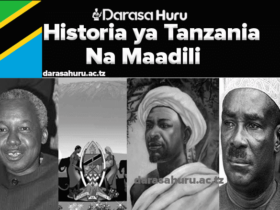
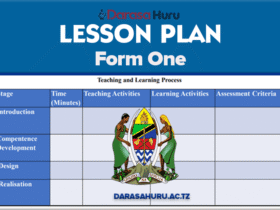

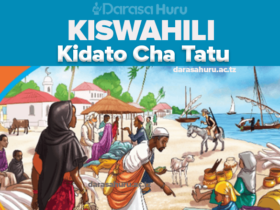

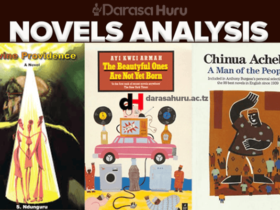
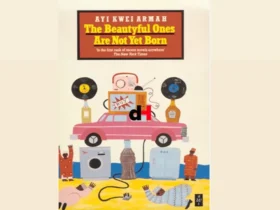
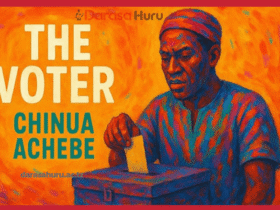

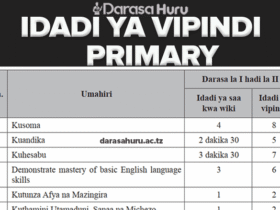
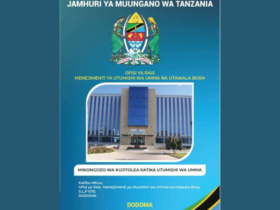


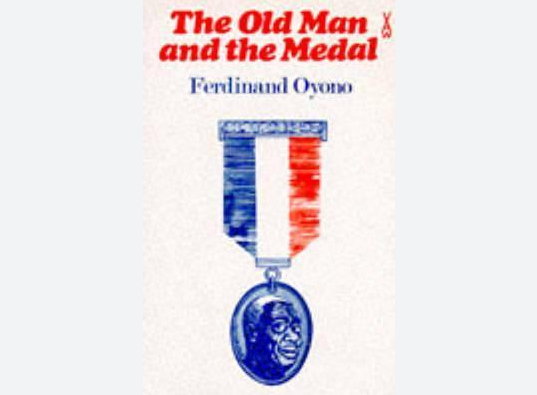







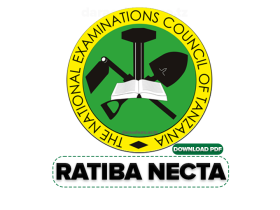




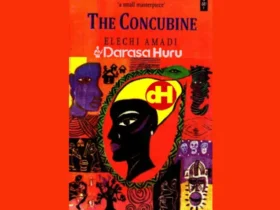
Leave a Reply